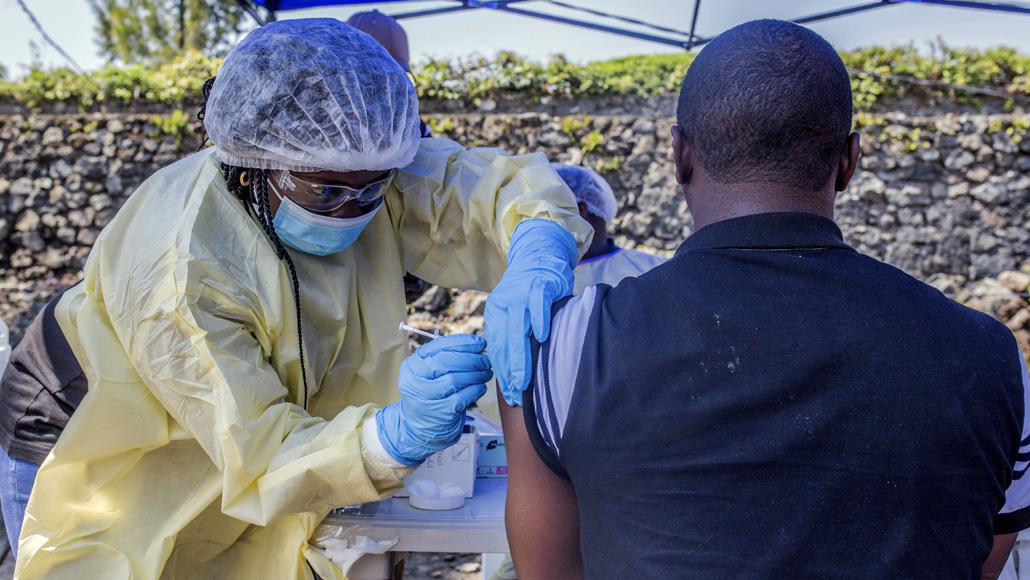In a first, an Ebola vaccine wins approval from the FDA
The drug is crucial to efforts to curb an ongoing outbreak of the deadly disease in Congo

A nurse vaccinates a man against Ebola in the Congolese city of Goma in July. The vaccine, called Ervebo, has been approved by the U.S. Food and Drug Administration.
PAMELA TULIZO/getty images







